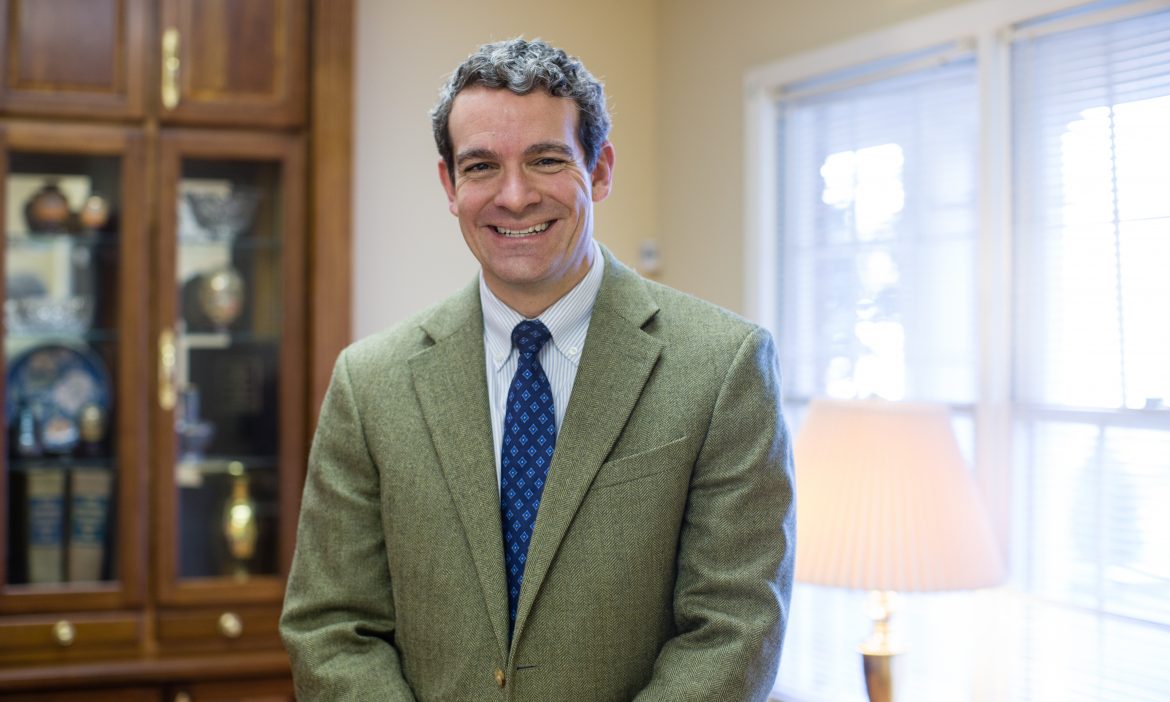Scott Johnson thinks about insurance a lot – as an attorney, and as a husband and father.
He’s the first to admit he often thought about the cost of health coverage more than the value of it. A life-and-death health crisis in the summer of 2015 changed all that.
Having just returned from a family beach vacation, Scott was settling into normal routines at his law firm, Spears, Moore, Rebman & Williams, P.C., when he began experiencing symptoms he attributed to the flu. He was initially cautious, but not overly concerned. He was in good overall health. He was an avid runner. And he saw his doctor regularly to monitor a heart valve condition diagnosed in 2009.
“We went jogging and did the regular beach stuff,” Scott recalls. “I had no problems on our trip. The fourth day back, I was achy with chills. I told everybody to stay away from me because I might have the flu.”
Past problems, new crisis
Scott’s symptoms worsened over the next two days sending him first to his doctor, then to the ER. After Scott mentioned he was a heart patient, the ER doctor ordered additional tests. These revealed not the flu, but endocarditis, a heart infection exacerbated by his heart valve condition.
Scott was admitted to the hospital and doctors told him he’d need surgery to replace the valve. But his condition deteriorated as his liver and kidneys began failing. The surgery would have to wait.
“I don’t remember much of those seven or eight days,” Scott says. “I know it was a very scary situation for my family.”
When he’d improved enough, Scott was transferred from Erlanger Hospital in Chattanooga to Vanderbilt Medical Center in Nashville. The surgery would be done by a doctor he’d already been seeing for his heart valve condition.
Scott asked him to be upfront about his condition. He vividly recalls the doctor’s answer.
“‘You’re at a better point than I thought you’d be,’” Scott repeats today. “‘You’ve got the worst case of endocarditis I’ve seen in 40 years of medicine. Your chances are about 50/50.’”
But the improvements he’d already made, and confidence in his doctor, buoyed Scott as he went into surgery on June 27, 2015.

“Knowing that surgeon, I had an incredible peace about me,” Scott says. “I know that’s completely from the love of family, friends and prayer.”
The road to recovery – and a change in perspective
A stay in the intensive care unit and then a rehabilitation facility followed – 50 total days of hospitalization.
Scott gained strength while learning to do normal activities like walking and bathing while recuperating. Returning to Chattanooga, he had home nursing care and physical therapy before starting cardiac rehabilitation. It was several months before he started a modified work schedule.
“You don’t always see it from one day to the next, but if you look back two weeks, you see the progress,” he says.
Three years later, life looks much like it did before surgery with a few additional doctor visits and changes to his exercise and running routine. He’s been back to a regular work schedule for two years. He keeps up with his kids’ activities, and family beach trips are back on track. Though it’s hard looking back, Scott sees his illness, hospitalization and recovery as a blessing in disguise.
“You have to slow down and prioritize,” he says. “I’ve gained a greater appreciation for balancing it all.”
He’s also grateful for the many ways his family has supported him through his recovery.
“My wife has been amazing through all that I experience on a daily basis,” he says. “My kids have grown in their faith and love for others.”
‘Zero issues’ with insurance
Scott also has a greater appreciation for the coverage provided by BlueCross through his employer plan. The total cost of Scott’s care exceeded $800,000.
“During a conversation with a hospital nurse, my wife and I asked, ‘Is all this stuff going to be covered?’” Scott recalls. “Later, we kept getting statements showing, ‘You owe your provider nothing.’”
He’s also appreciative of BlueCross case manager Elenir Marques and transition of care nurse Alice Cagle. They contacted him regularly to explain steps along his path to recovery.
“They were always cheery,” he added. “I was well-informed.”

The view ahead
Scott knows his heart condition will always require monitoring. He may one day need another valve replacement surgery – “It’s always in the back of my mind,” he says – but he tries to keep his heath in perspective.
Any symptoms like he had before get immediate attention. And he’s more intentional in everything he does.
“I’m more involved with others in every aspect because I know that I probably wouldn’t be here if it weren’t for a bunch of loving people,” Scott says. “Every day I wake up and say a little prayer of thanks, and some days a big prayer of thanks.”


 Marie joined the BlueCross BlueShield of Tennessee corporate communications team in 2012. A Florida native, she has more than 25 years of experience in public relations, community relations, speech writing and special event planning.
Marie joined the BlueCross BlueShield of Tennessee corporate communications team in 2012. A Florida native, she has more than 25 years of experience in public relations, community relations, speech writing and special event planning.